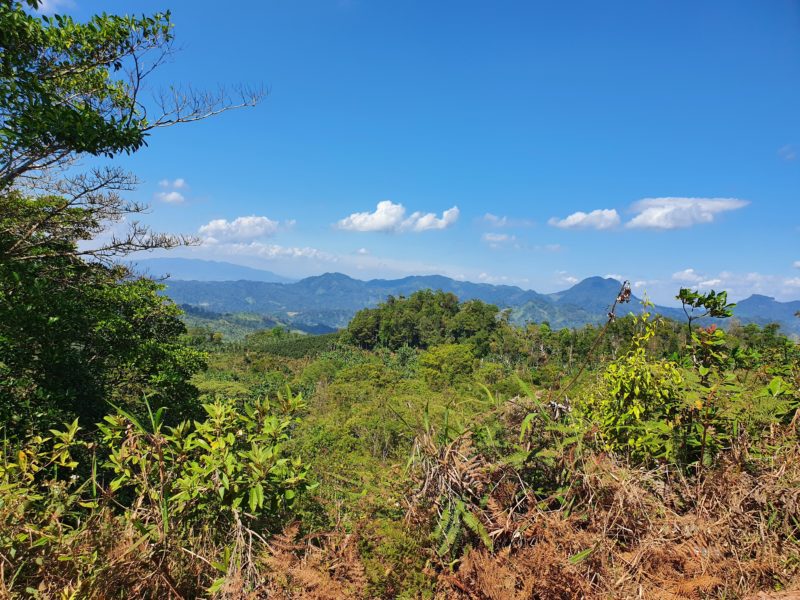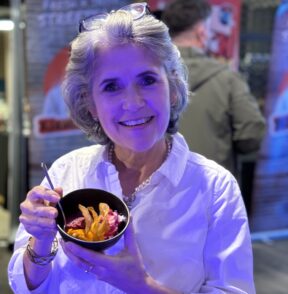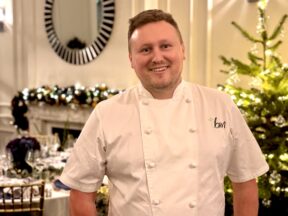Blogs
My exciting journey to meet the Soppexcca coffee farmers
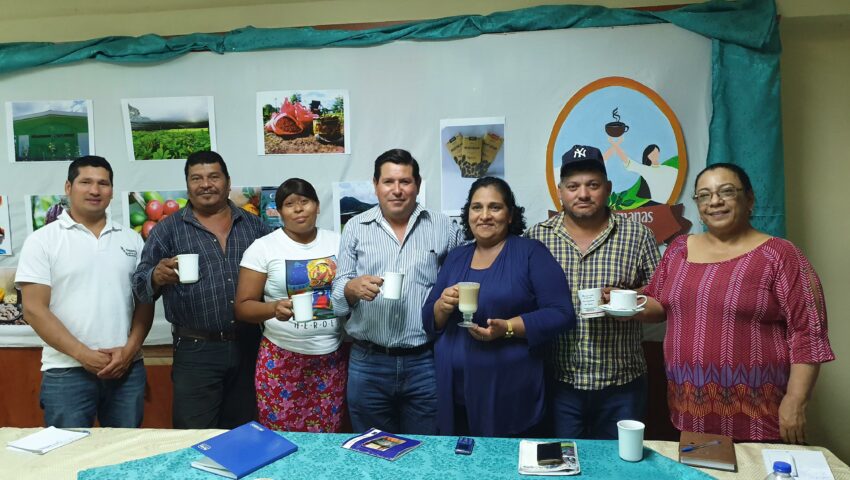
The pandemic seems to have erased the beginning of 2020. But way back in February I had the privilege to visit the Soppexcca cooperative in Nicaragua. It’s the birthplace of our Fairtrade and award-winning Perkee coffee.
The humidity hit me immediately I stepped off the plane. Humidity is common in countries where coffee grows. It’s known as the ‘coffee belt’, and sits between the Tropic of Capricorn and Tropic of Cancer.
Magic at the dry mill
After spending a night resting in very hot and humid Managua, we made our way to Jinotega. I could feel the excitement building up as we drew closer. Our first stop was Soppexcca’s Benificio Seco (Dry mill) based in Matagalpa. My heart sped-up as I recognised the building from the pictures and videos I’d seen from Wendy and Lin’s previous trip. At that moment, I realised “this is where the magic happens!”
It was wonderful to be able to enjoy an amazing black coffee at the Benificio. I chatted to the Q graders – specialists in green coffee bean quality. Imagine my delight to discover they have promoted one of their female baristas into the team. She is Soppexcca’s first woman Q grader.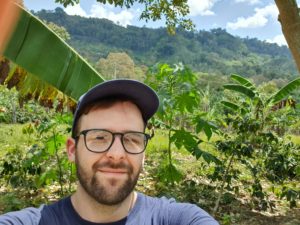
Emotional meetings
After visiting Benificio we went to Jinotega, where Soppexcca’s offices are, to meet the board members. Meeting Fatima Ezpinoza the Manager of Soppexcca Co-op was very emotional. For the last four years I talk about Fatima every time I discuss Perkee coffee. Meeting her was overwhelming. We talked about Soppexcca’s journey since 1997. This included the recent difficulties. The civil and political unrest damaged their economy and way of living. This meeting also helped me to understand why the cost of coffee production is going up, but the world market price is going down. This makes it hard for farmers to sustain a coffee business. Adversity forces them to look at alternative ways to make a living. This includes growing crops like cacao, bananas and vegetables. This is why Fairtrade is important. Fairtrade guarantee a minimum payment to farmers which bypasses the world market price.
Sustainable and entrepreneurial coffee farmers
The first farm I visited was El Escambray run by Marvin. We bought all their coffee last year and launched our first ever micro-lot of natural coffee. El Escambray is situated 1,000m above sea level. Because it’s in an area where rain is almost non-existent, natural processing becomes a better solution. Marvin and his local neighbours, who help on the farm, have planted banana trees. They shade the coffee plants and keep the area cool on hot days. Moving away from monocropping also provides more nutrients to the soil, better coffee plants and extra income.
Our micro-lot project enabled Marvin and his family to get the Fairtrade-plus price. We paid the Fairtrade price for his coffee, plus an extra premium. With this extra income he was able to buy equipment which will improve the quality of his crops this year. I was very pleased to see such great work and to know we helped get Marvin’s project over the line. This extra income enabled Marvin and his family to start a new range of honey- processed coffee. It yields a tea like drink with delicate coffee flavours.
After the visit to El Escambray we went to see their compost field. Fruit left-overs and different types of soil make up the compost. The compost helps trees battle disease and keeps them strong when the weather isn’t great. On the same land they have created a cloned field of cocoa plants. They sell them to farmers to plant alongside their coffee plants. This helps prevent soil erosion and degradation, biodiversity loss. It’s also another income stream for Marvin.
Chocolate
After learning about cocoa trees we made our way to Soppexcca’s chocolate factory. It only operates twice a week, due to low sales after the civil unrest. After the conflict, many international buyers decided to stop trading. This damaged the cacao business which was achieving success. They are hoping that the market will improve as calmer times return.
Perkee makes a difference to education
I wanted to see the benefits Perkee has made to the local schools. We visited the School of El Salto based in nearby Arlen Siu Cooperative.
I felt quite emotional seeing the amazing reception from the school children. They chanted the Nicaraguan anthem and danced to local songs. I felt privileged to deliver school packs that Soppexcca had bought with their Fairtrade Premium. The children were happy and thrilled to receive these valuable materials.
Comparing it with my school memories, there were many basic educational items missing. The classrooms didn’t have walls separating them, making it hard for the kids to focus in their class. The playground didn’t have a concrete base, so the kids were playing football amongst the rocks. There were no fences around the school making it easy for kids to escape classes or the school. And one teacher mentioned they could even be robbed.
Before leaving the school, we met with the teachers to understand what materials they still need. They mentioned projectors and educational materials like maps and instruments for music classes.
At the school I also met Maria Gonzales, who own a farm called ‘Las Marias’. Maria welcomed us into her home and served us a local drink called Pinolillo (or Pinol). It is a cornmeal-based cacao, mixed with local spices. Maria lives in a house made of cemented walls and floors covered with corrugated iron. I found this type of construction very popular in the farming communities. Maria took us around her farm which was a mixture of fruit trees, tangerine trees and cacao plants. She also had her own compost fermentation field where she was making natural compost.
Skinny months initiatives
It was time for roundtable session at the Benificio Seco in Matagalpa, home to the women’s co-operative. We had lunch with them whilst listening to local music.
They explained their journey and the building difficulties they face. During the ‘skinny months’ there isn’t any work raking beans at the co-operatives. It was great to see their new initiatives taking shape- a biscuit factory and an organic vegetable and fruit market.
After the round table discussion, we cupped some coffees. We sampled El Escambray’s amazing natural product along with their new honey-processing drink. Both of them were the best on the table. Neither of the coffees cupped scored below 82 points. Usually 80+ is classed as a Speciality Coffee, where the flavours are more subtle, and the cup more balanced.
I was touched by the welcome I received, at Soppexcca, which culminated in a delicious dinner with musical entertainment in my honour. I concluded the visit with a meeting to agree our plans for the next few years. We all wanted to to ensure the sustainability of their coffee business.
I had an amazing trip to meet the Soppexcca cooperative. It has helped me to reaffirm the importance of keeping the supply chain clear and close. A business shouldn’t be all about money and product. It’s about relationships and trust. That is why we will continue to support Soppexcca in the years to come.
Keep watching this space for the exciting plans we have.
